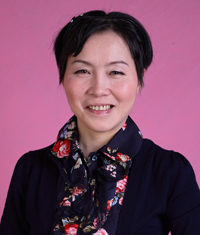Social ills symptom of unhappy people
 Luo Chuanyin |
Someone recently compiled a list of 50 events that, when they happened, were not as alarming as they might have been in the past. It included the Wangjialing coal mine accident, medical fraud Zhang Wuben, academic corruption scandals and "weirdos" on television. People are now living in a colorful but coldhearted era, and such events are destroying the fabric of society by ruining people's consciences and poisoning their souls.
But why did these things happen?
The Nobel Prize-winning economist Paul Samuelson once devised a largely ignored formula for happiness. Happiness, he said, equals utility divided by desire. Though it is difficult to quantify happiness, the formula could determine the location of Chinese people's happiness.
Utility can be interpreted as the fortune or power an individual has or is able to obtain. Happiness therefore depends on how one's fortune or power and desire relate to each other. When fortune or power grows and desire remains the same, happiness increases. It also increases when fortune or power remains the same and desire gets smaller.
I've classified events on the list as a decrease of fortune and power or desire. For instance, when people kneeled before authorities in protest [two recent occurrences happened in Fujian and Liaoning provinces], that was a decrease of fortune and power. Similarly, the frequent coal mine disasters – that was also a decrease of fortune and power. So were charity donations that went to the government.
On the desire side, desire was kept in check when talented people left to work overseas; when people's houses were taken from them by force and destroyed; and when justice wasn't served.
So, by ignoring the formula and not applying it, I've concluded that when fortune or power is divided by happiness, people's desires are controlled. That is, happiness depends not just on fortune or power but also desires.
It is unfortunate that many people don't know where happiness is. Most see fortune, that is, material abundance and satisfaction, as most essential. Some, especially those who aren't aware of the happiness formula, even think it's the only element of happiness.
The constant increase of fortune and power is often accompanied by an increase of desire. Once they get a certain amount of fortune or power, people think of “reaching the next level.” Happiness, therefore, never increases.
Also, the market economy produces inequality. Inequality somehow makes people desire more than what they have, and when that happens, they'll feel sad, or not happy. So the government should do something to make this stop, like reallocating and adjusting things.
Moreover, if money or power is involved, there will be no fair play. I think without fair play, utility will decrease while desire will increase.
The development of the market economy opened China to the world and changed Chinese values and influenced society and politics. Now, people love fortune and power too much. And this is why Chinese can't be happy, and why those 50 things happened.
(This post was first published in Chinese and translated by Keen Zhang.)
 0
0 






